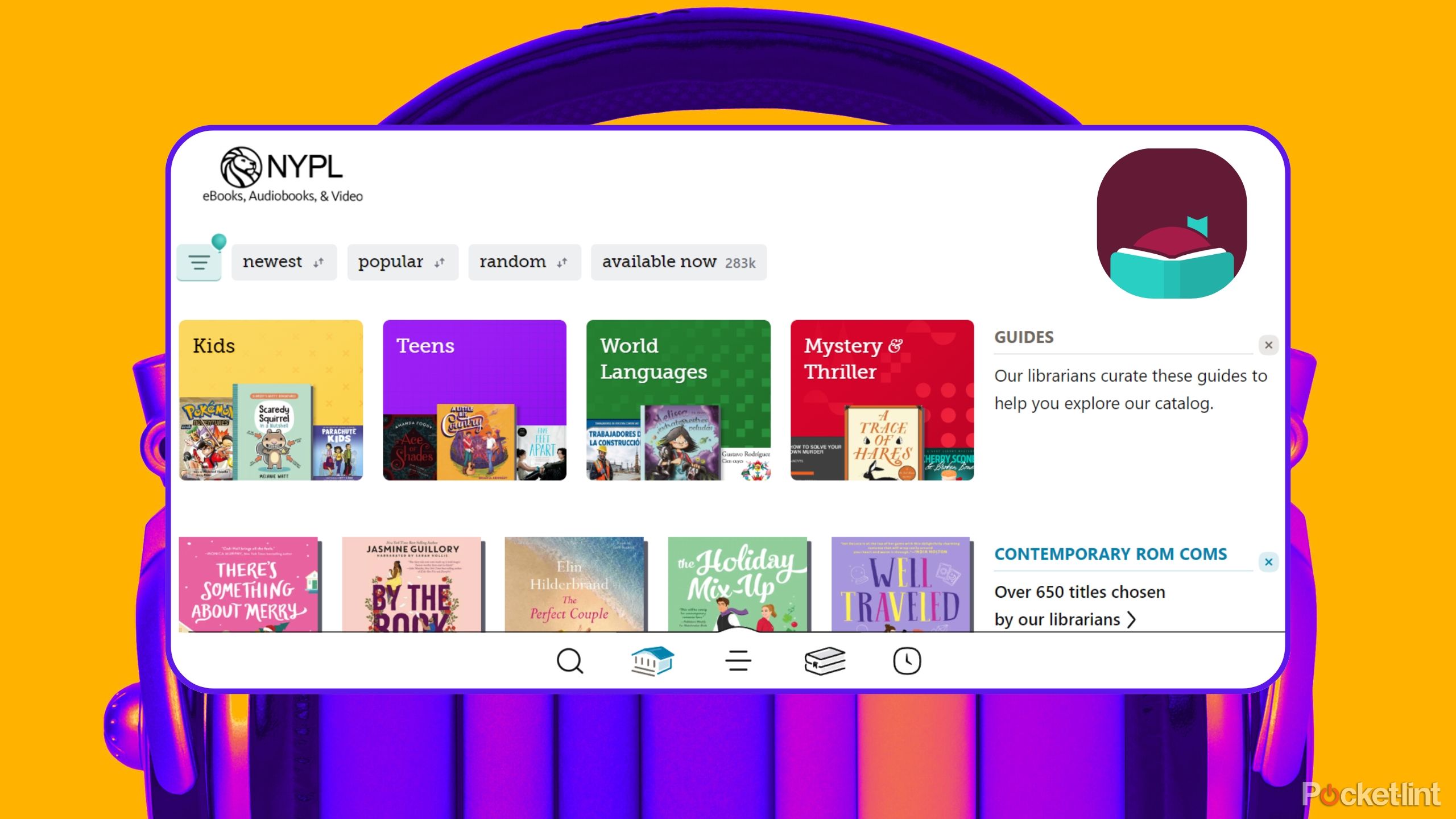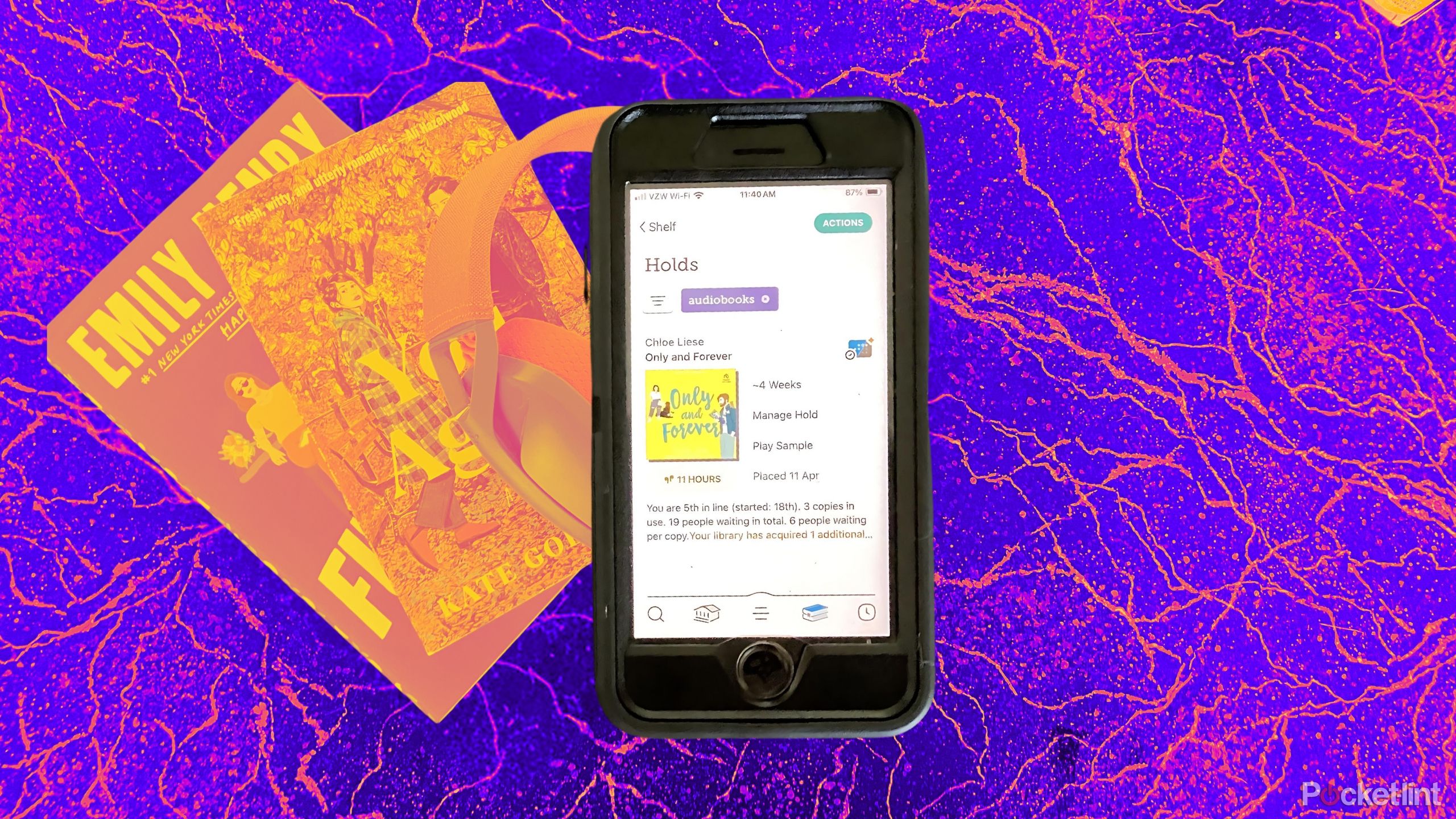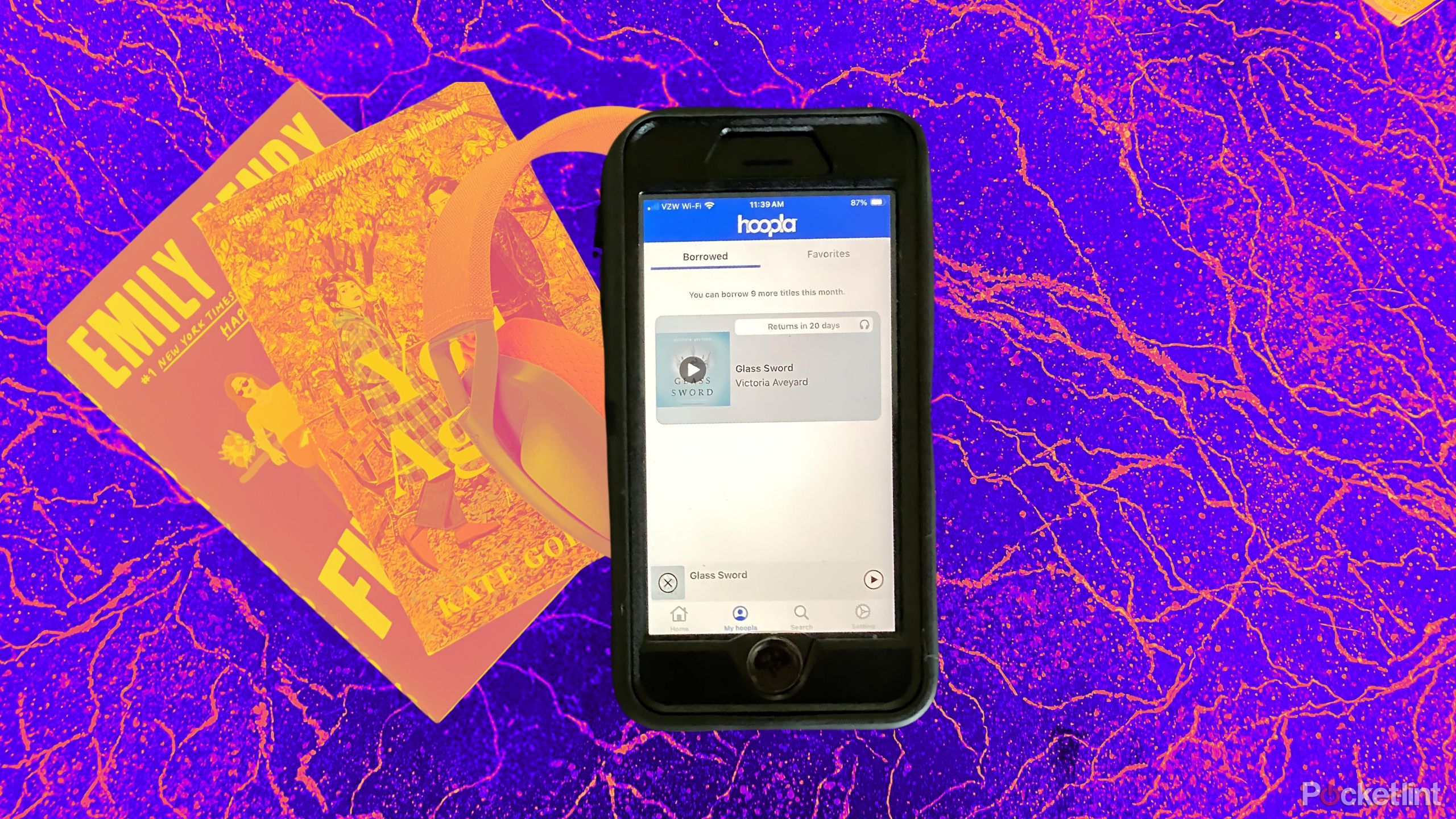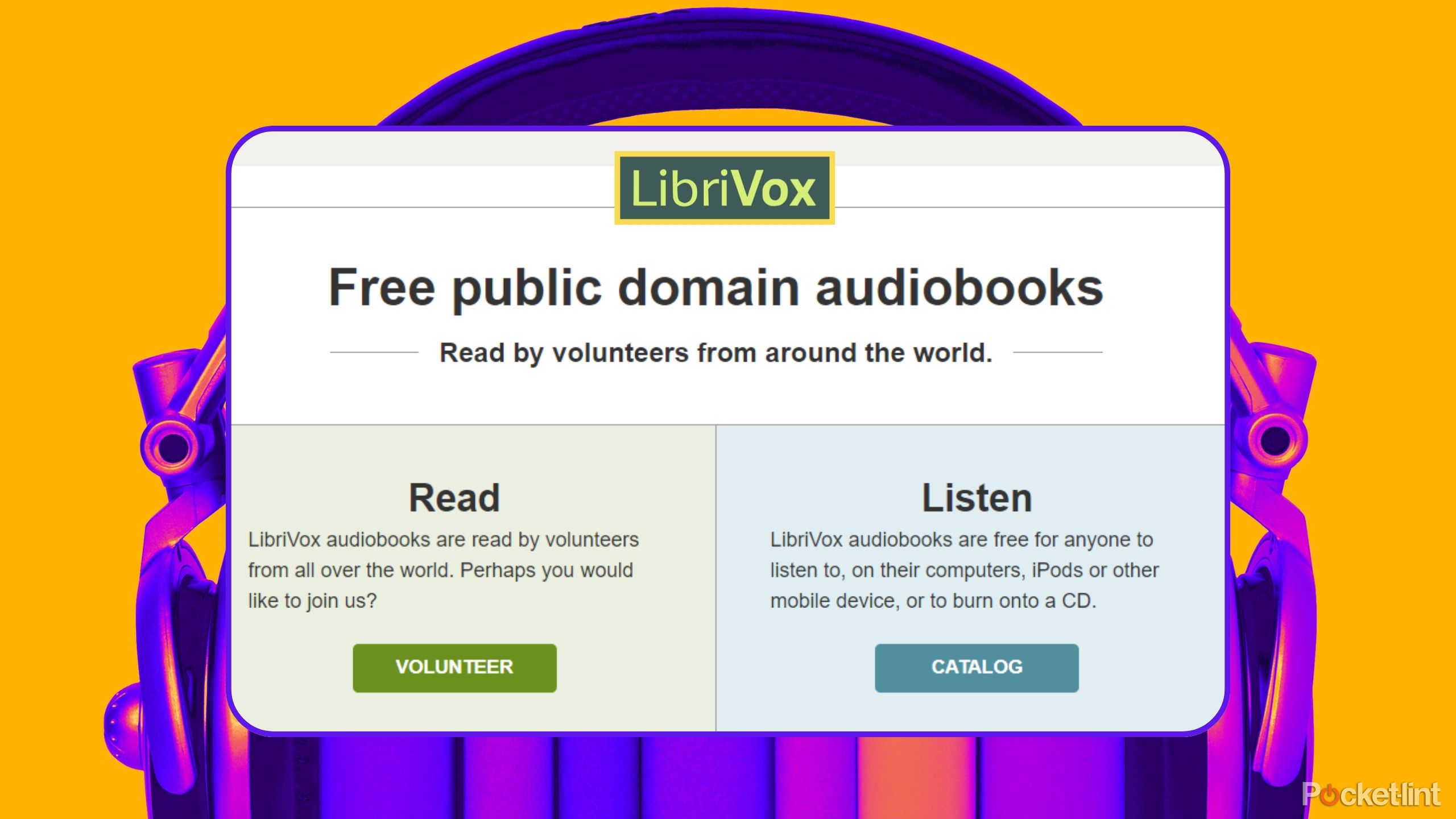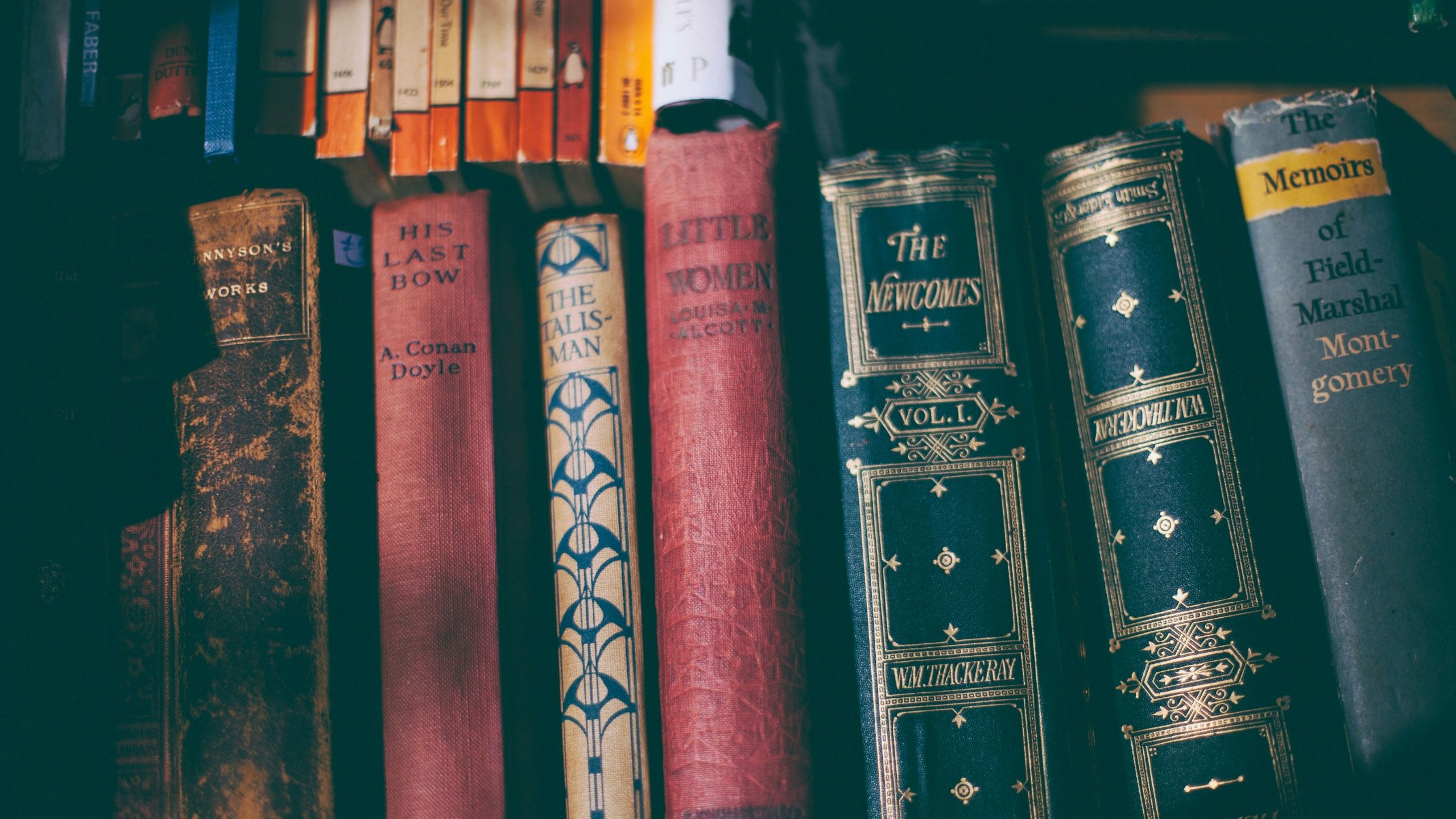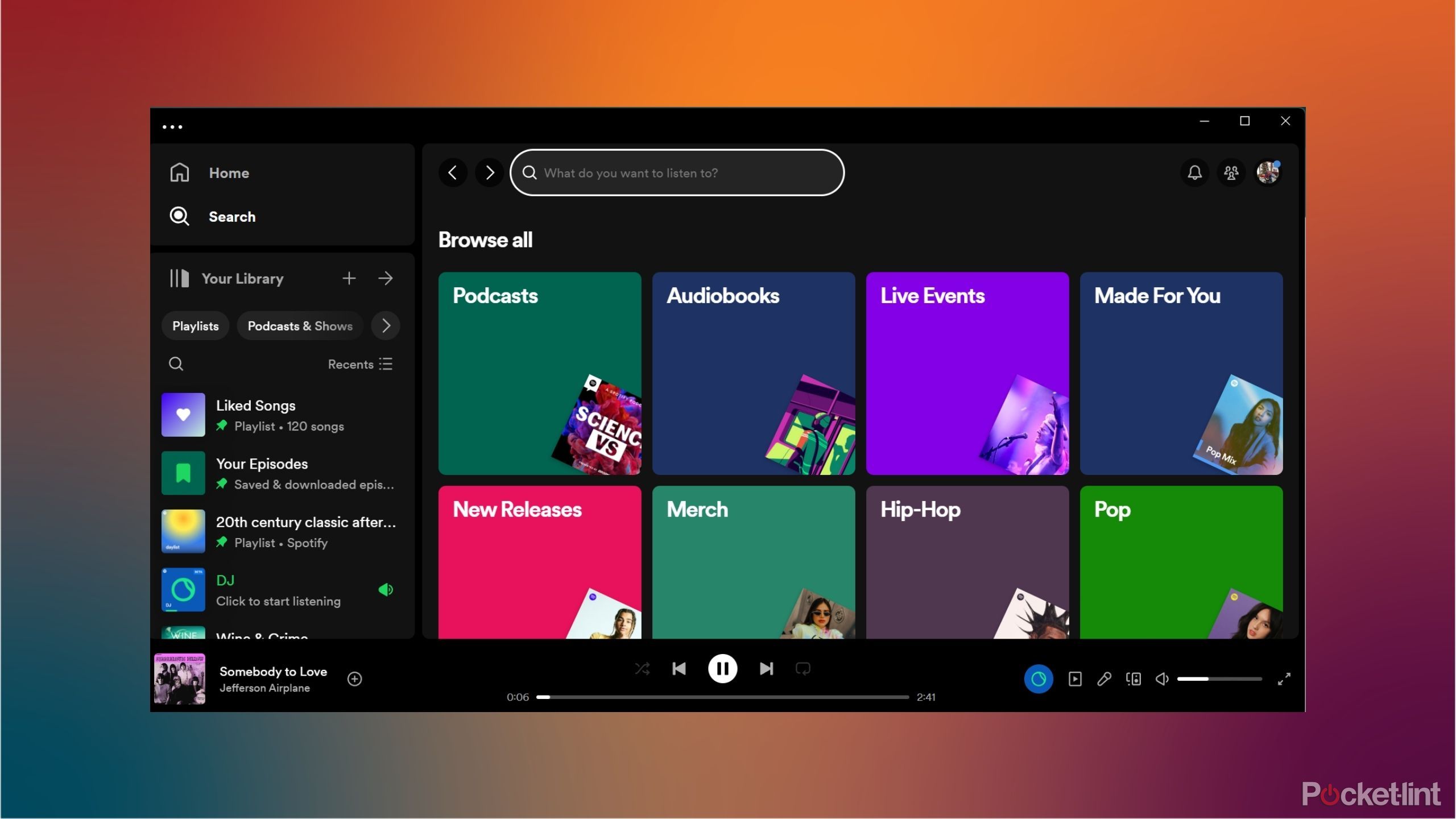Key Takeaways
- Libby and hoopla offer free access to audiobooks, helping save money.
- Audiobooks take time to produce and can be expensive; consider free library options or YouTube and LibriVox for access.
- Libby has massive catalogs but may have wait times; hoopla offers instant borrows but limited selection.
As a tech journalist and librarian, I’m one of the first to say audiobooks truly count as books, and listening to audiobooks is indeed reading. Especially as both a visual and auditory learner, my love of cracking open a fresh paperback, swiping on my Kindle, or settling in for a great audiobook story are equal across the board. Reading and listening comprehension are interchangable in my head, and for many others, as seen in a 2016 study published in Sage Open journals.
Audiobooks and podcasts are both favored by multitaskers and folks split in a hundred directions, whether that be with commutes, kids, or work-life balance, they’re the fastest growing sector of book publishing. With that line in the sand drawn, most audiobook lovers can empathize with how incredibly expensive this form of media can be — if you don’t know about Libby and hoopla, that is.
I’ll guide you through how I race through 100 audiobooks in a year, at no cost, by supporting the wonderful libraries in my community.
Related
How to get free books on your Kindle and Fire tablet without buying from Amazon
If you have a book addiction like I do, reading can get expensive. But now I snag most of ebooks for free — and still get to read them on my Kindle.
Audiobooks take time to record, produce, and distribute, making costs higher than print and ebooks generally. You can weigh the options between paid subscription models like Audible, Spotify, or my personal favorite Libro.fm to name a few. But the best way to access free audiobooks is through your local public or state library through either of their two services: Libby or hoopla. Below I’ll guide you through how I race through 100 audiobooks in a year, at no cost, by supporting the wonderful libraries in my community.
How to get free audiobooks delivered to your phone
Both apps are user-friendly and quick to start
Most of my audiobooks come from the Libby app and, more recently, hoopla, when my local library added that service. They are both free to library patrons, your library uses its budget to support these services or works with other libraries as consortia to purchase. You just need to add in your library card information — the number below your barcode.
Many larger state libraries, like the New York Public Library in NYC, allow any New York State resident to access an ecard through their platforms, so you can add another card onto your Libby app to search within multiple collections at once. So, a pro tip: check the largest libraries in your state too.
The fact that I can consume the amount of audiobooks I want to without forking out hundreds of dollars a year, has been life-changing in keeping up with new releases and favorite authors.
To get started with Libby or hoopla
- Contact your local library to get a library card — many allow online registration.
- Check their websites or ask a librarian if they provide Libby and/or hoopla (Libby is more popularly provided across the US).
- Find your library user barcode number and PIN if needed.
- Signing up with your library credentials on the browser ahead of time is your best bet, then proceed to the app.
- Download the app through Apple app store, Google Play Store, or Amazon app store.
- Login to your library account on the app.
- Check your app settings to increase loan lengths and delivery methods.
- Proceed to borrow titles to listen to on your phone, tablet, or eReader device, without the fear of late fees, they are automatically returned.
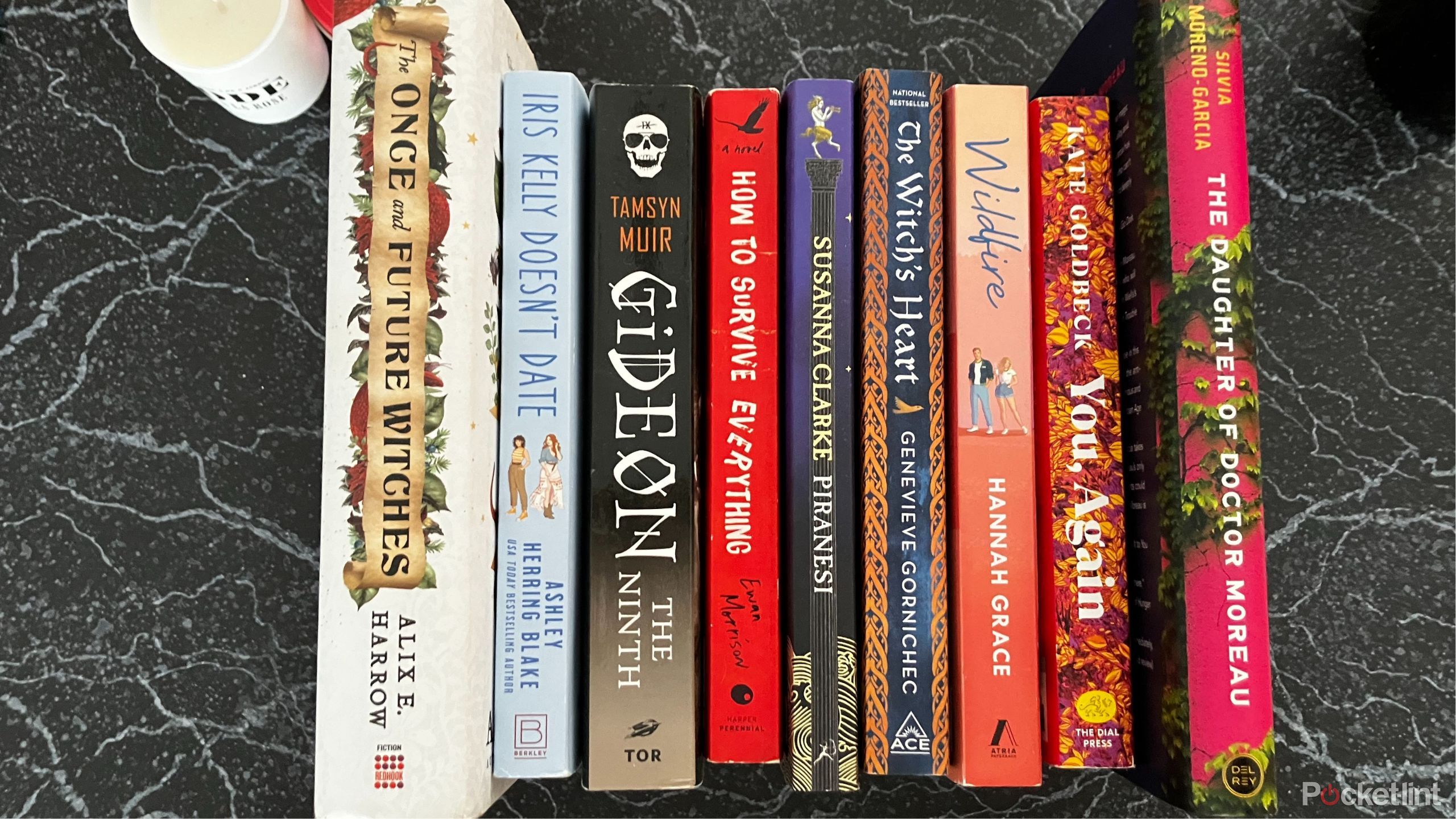
Related
How StoryGraph works and why it’s my favorite Goodreads alternative
As a librarian, my go-to Goodreads alternative is StoryGraph. Here’s how the book tracker won me over with data visualizations and personalized recs.
Libby’s resource sharing model
Loans without late fees on popular materials
Libby’s lending model revolves around shared resources. You can browse a huge collection and borrow or place holds if there is a wait for the copy you intend to listen to. Libby also includes ebooks, magazines, and some video content — depending on what your library has purchased. While I use Libby for ebooks here and there, audiobooks are where it shines most. Libby’s main advantage is the massive catalogs, especially if you have access to a larger library.
A great way to queue up a ton of audiobooks between holds and loans so that you always have materials on hand.
Your library or libraries will set your loan amounts and hold limits, but generally, with the five libraries I have had cards for Libby access at, each card has allowed me either three or 10 loans (most commonly three) and three holds. Again, if you have multiple cards, those numbers increase to three or 10 per card. This is such a great way to queue up a ton of audiobooks between holds and loans so that you always have materials on hand.
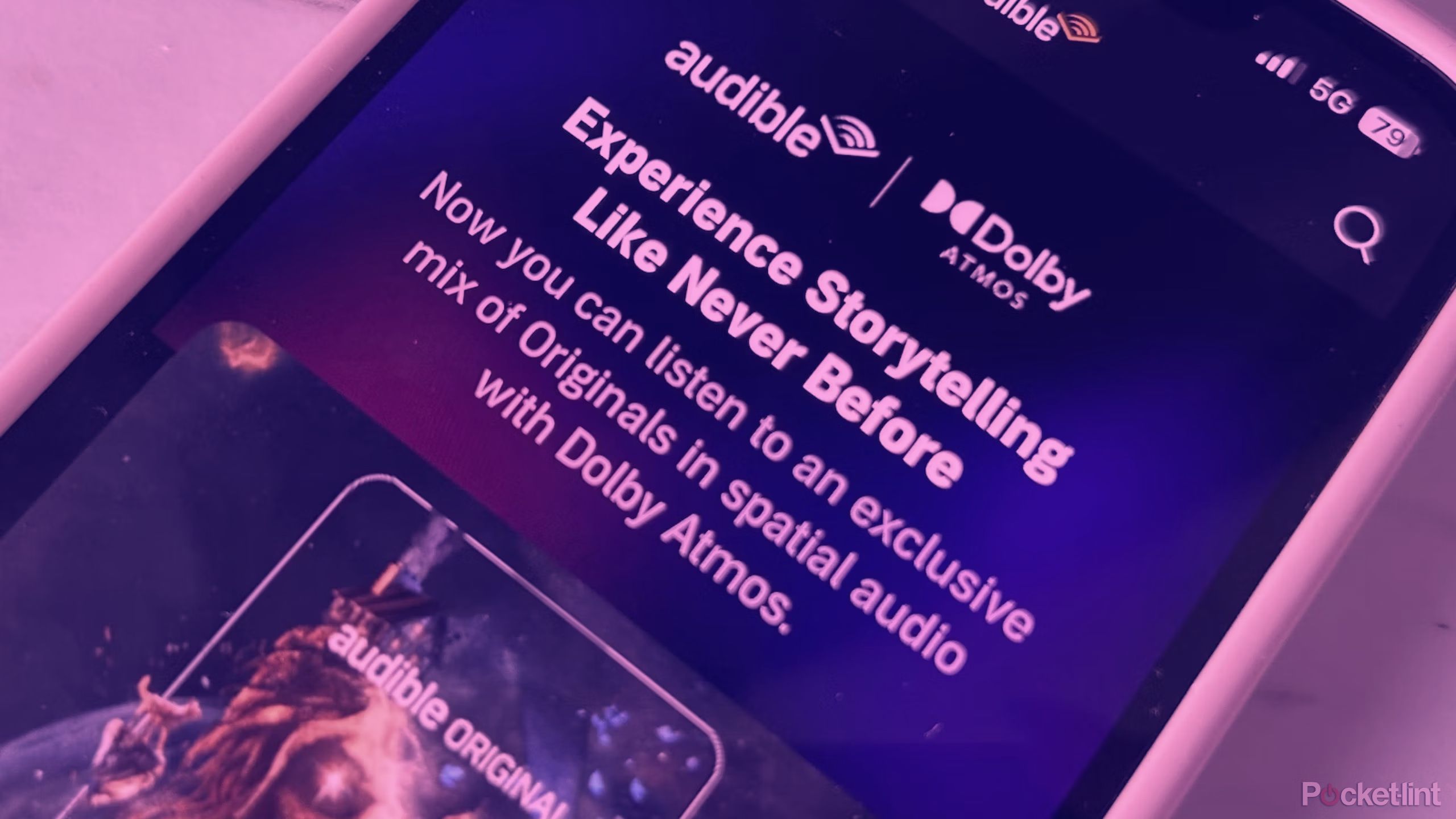
Related
I listened Audible’s Dolby Atmos audiobooks to see if sound was better
The collection might be limited, but what’s there is worth it.
Hoopla’s lending model helps you skip the line
Why you should use both Libby and hoopla simultaneously
Hoopla on the other hand, solves many Libby user’s one qualm — the wait period on new releases and popular content, due to the shared resource model. The advantage of hoopla is that there are no wait times. The lending model here instead allows instant borrowing, but a limit on how many borrows per month.
My local library allows 10 borrows a month. Using both of these apps, if you have the option to, is the ideal way to find audiobooks without sacrificing your wallet. I find my Libby accounts have great selection, but sometimes longer wait times, and hoopla is the opposite, less selection, but no wait time.
I find my Libby accounts have great selection, but sometimes longer wait times, and hoopla is the opposite, less selection, but no wait time.
I still purchase some of my favorite audiobooks here and there, but the fact that I can consume the amount of audiobooks I want to without forking out hundreds of dollars a year, has been life-changing in keeping up with new releases and favorite authors.
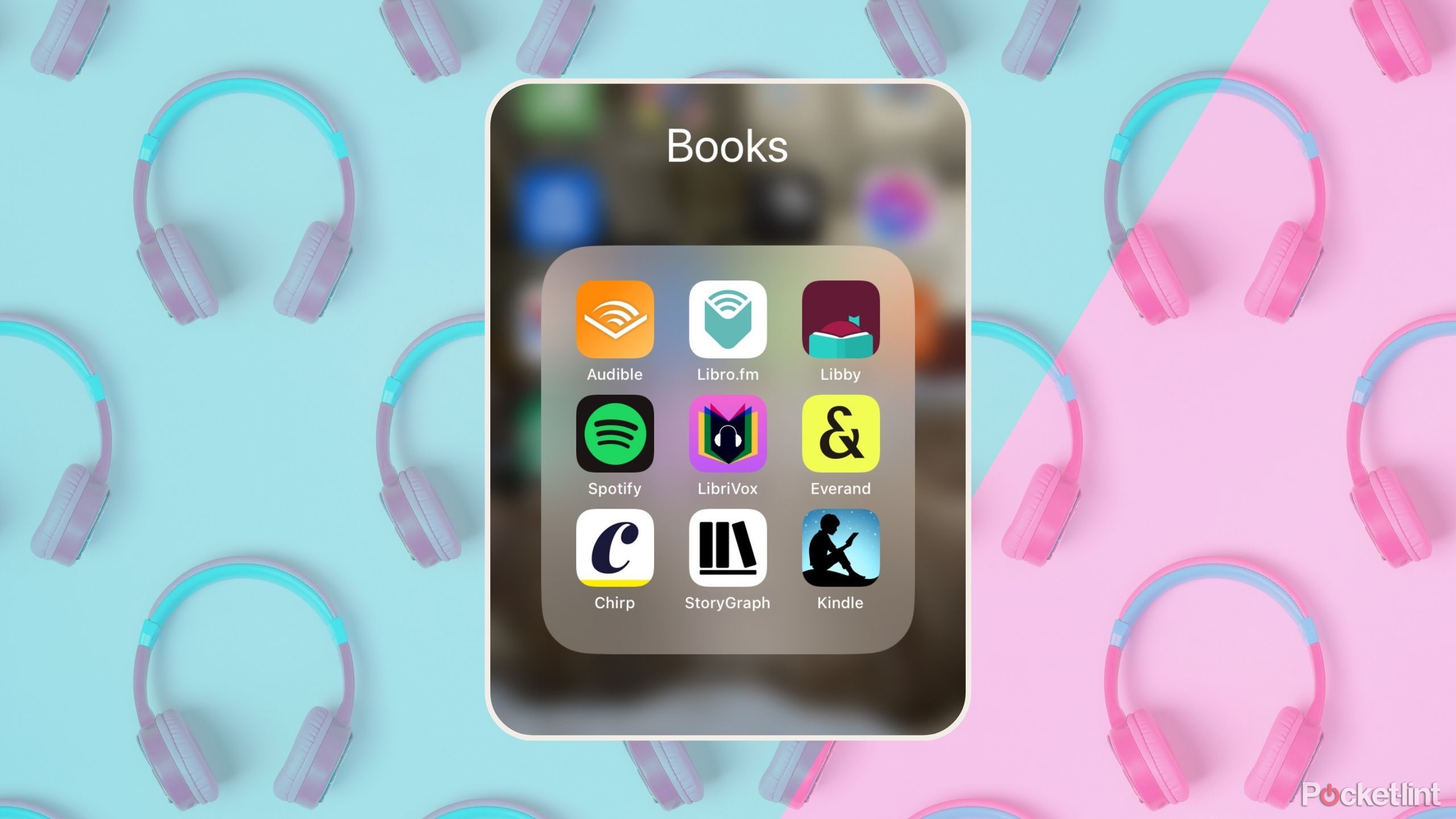
Related
7 best audiobook apps: Audible isn’t your only choice
I’ve compared the cost, catalogs, and UIs for the top audiobook apps, including Libby, Libro.fm, Chirp, Everand, LibriVox, Spotify, and Audible.
Other ways to find free audiobooks
1. Check YouTube and LibriVox for the classics
Clem Onojeghuo / Unsplash
Any title that is out of copyright protection and in the public domain is up for grabs for adaptation — including audiobook versions. You can find tons of classics through YouTube or LibriVox to cover titles published prior to 1928 — as of 2024 public domain rules. LibriVox is made up of free titles, turned into audiobooks all recorded by volunteer readers — and they’re great quality. YouTube can be a bit more hit or miss, but both platforms are must-have tools for educators.
There is a huge and refreshing emphasis in public school education in the last twenty years to offer required course materials for multi-modal learning styles, and audiobooks are an incredible help in this area.
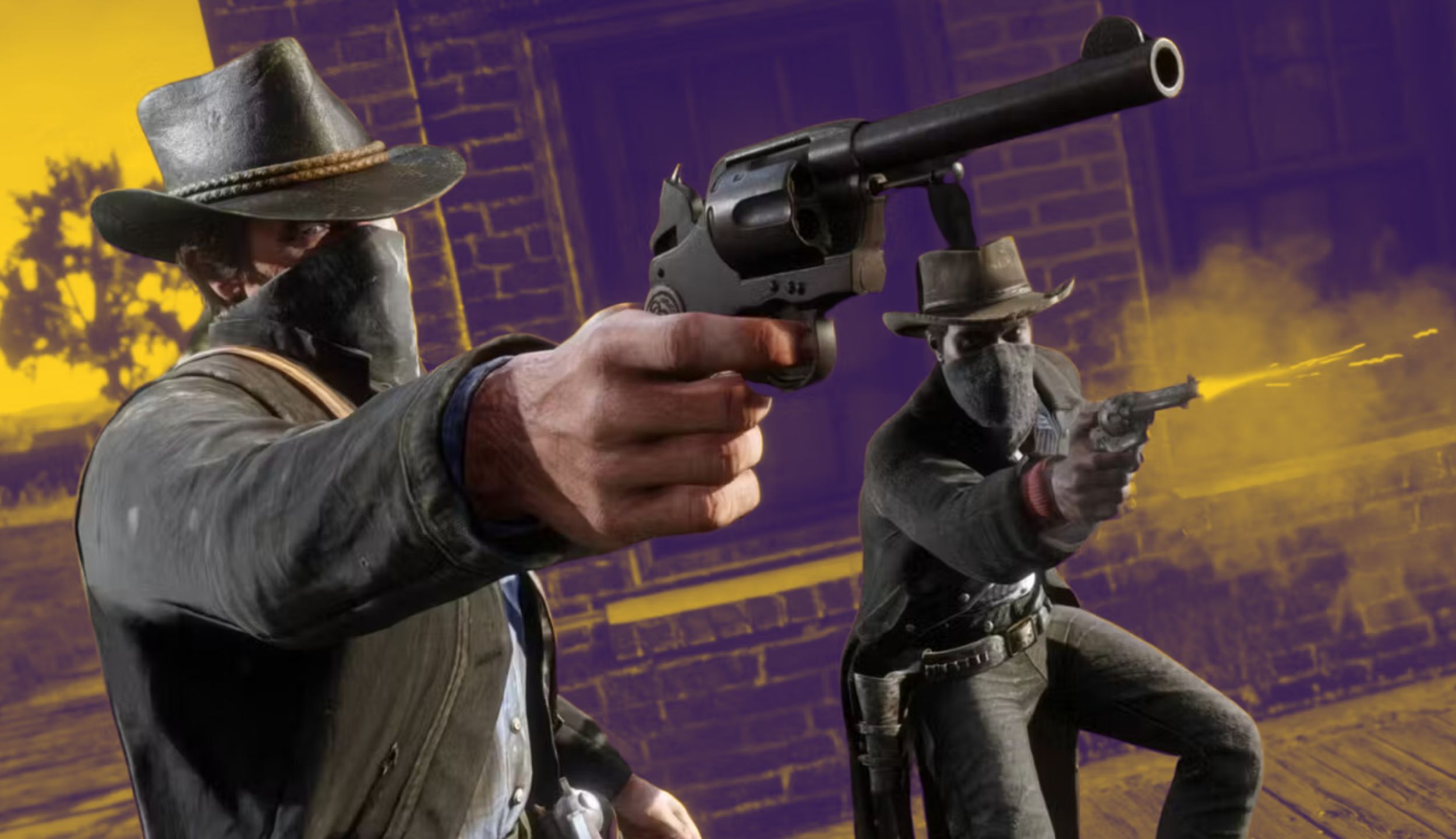
Related
7 games that would make TV shows as good as Fallout
With shows like Fallout and The Last of Us leading the way, there’s massive potential for more TV adaptations with these games.
2. Check your current subscriptions
When Spotify added audiobooks to their Premium pricing tier, then further added a separate pricing tier just for audiobooks, many saw it as an attempt to edge out Audible in its massive hold on the market. I saw it as a great way to grab a couple more audiobooks because I was already paying for Spotify premium. It’s worth checking what services you already pay for, to see if you’re missing out on perks.
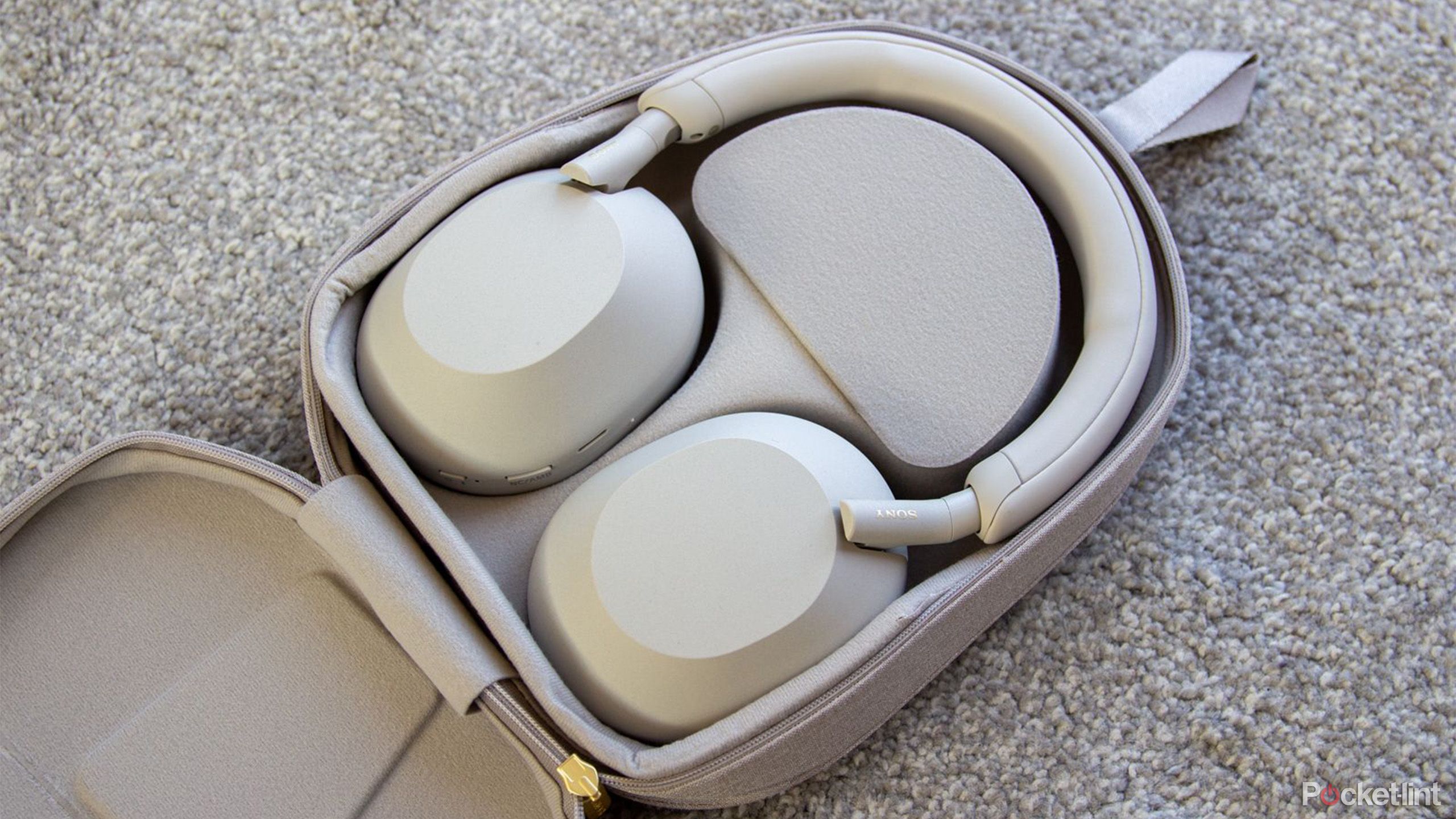
Related
Best noise-cancelling headphones and earbuds: Audiophile tested and reviewed
According to our in and on-ears listening, these models from Apple, Bose, Sony, and more top the market in quality, quiet, and comfort.
FAQ
Q: Are audiobooks free with Amazon Prime?
No, a separate subscription to Amazon’s Audible platform is needed to access audiobooks through Amazon. There are various pricing tiers for Audible allowing for access to the catalog or access to the catalog plus credits for individual title purchasing. See more in our Audible coverage here.
Q: Where can I find audiobooks for free?
Library service platforms like Libby and hoopla apps offer free audiobooks for patrons. Both platforms are great for recent releases, popular titles, and best-sellers but have slightly different lending models. Libby shares resources so you can borrow if available or place holds on items to wait for. Hoopla allows instant borrowing, but a monthly quota limit. You can also find public domain titles on LibriVox or YouTube.
Q: Can you get free library audiobooks on any device?
Any device that has access to the Libby or hoopla apps, whether that be your phone, tablet, ereader, or computer, will work. Check the app store on your device for compatibility. I haven’t found a smartphone that doesn’t comply yet, but with some ereaders you may need to enable third-party app functions first. Go to your settings to check this if you don’t see these apps in the ereader’s app store.
This has improved greatly over the past ten years as even some Amazon devices allow more third-party apps like Libby in their storefronts. You can also listen on a browser on your laptop or desktop if you don’t have your portable device handy and want to listen while you type away. Check out the Libby app browser (libbyapp.com) or hoopla browser (hoopladigital.com) for that function.
Q: Are there any specific services for free children’s audiobooks?
Yes, there are. If your child goes to a school district whose library purchased access to Sora, you and your kids can find age-appropriate reading and listening materials the same way you would operate the Libby app. Sora app is owned and operated by the same company that runs Libby app: Overdrive. Sora includes fun achievement badges, gamifying the reading experience for younger users. Like Libby app, you can also adjust the font size and style type for accessibility, including dyslexic font style.
Of course, children can use the same services as adults above, but this product is free through many schools, adding on even more access opportunities and ensuring proper reading levels are reflected in the collection. Sora app includes ebooks and audiobooks, and teachers can even highlight assigned readings and course materials in ebook or audiobook format for students, so your children can easily locate required assignments.
Trending Products

Cooler Master MasterBox Q300L Micro-ATX Tower with Magnetic Design Dust Filter, Transparent Acrylic Side Panel, Adjustable I/O & Fully Ventilated Airflow, Black (MCB-Q300L-KANN-S00)

ASUS TUF Gaming GT301 ZAKU II Edition ATX mid-Tower Compact case with Tempered Glass Side Panel, Honeycomb Front Panel, 120mm Aura Addressable RGB Fan, Headphone Hanger,360mm Radiator, Gundam Edition

ASUS TUF Gaming GT501 Mid-Tower Computer Case for up to EATX Motherboards with USB 3.0 Front Panel Cases GT501/GRY/WITH Handle

be quiet! Pure Base 500DX ATX Mid Tower PC case | ARGB | 3 Pre-Installed Pure Wings 2 Fans | Tempered Glass Window | Black | BGW37

ASUS ROG Strix Helios GX601 White Edition RGB Mid-Tower Computer Case for ATX/EATX Motherboards with tempered glass, aluminum frame, GPU braces, 420mm radiator support and Aura Sync


